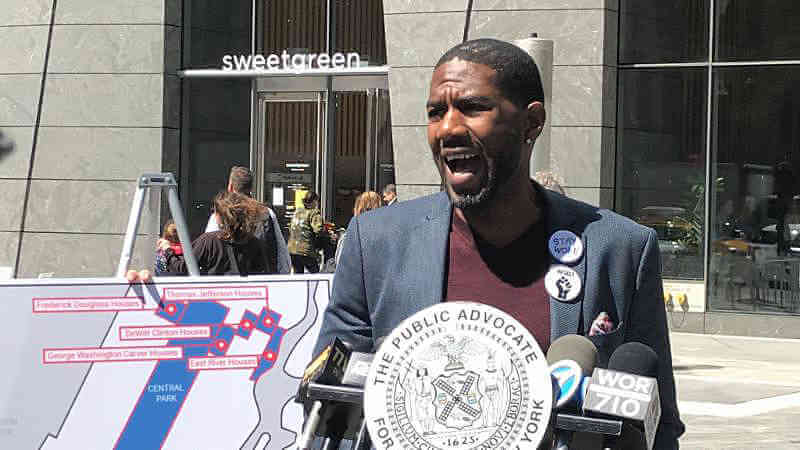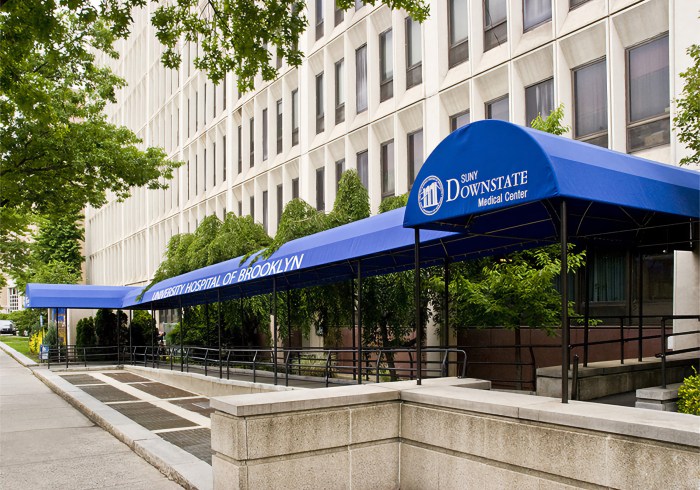The budget that the mayor is currently proposing would cause further damage for our city in ways we cannot afford by abandoning programs we need and values we hold. Each of the crises we are facing has also disproportionately devastated communities of more color, and the proposed cuts to many social services would be no exception.
The inclination in times of economic downturn is to cut. And of course some sacrifices, major sacrifices, painful sacrifices, will be necessary. But we cannot cut our way out of a crisis – we need to invest in our future. We need to invest in New Yorkers. Cutting programs that are critical to our growth and development – like youth jobs and services – is not a path on which we can grow, it will only take us backward.
There are cuts that can and must be made, but the best path forward for investing in our city is to employ long-term borrowing.
This is a fiscally-sound and clearly-necessary strategy to meet the current economic crisis without further irreparable damage to vital programs and the New Yorkers who rely on them.
Borrowing is not a radical idea. Unlike short-term borrowing, it is not an imprudent proposal. In past crises, we have taken on long-term debt and been able to move forward and build a strong recovery. I believe we must do so again, and fear if we do not, that recovery will not come.
Following the attacks of September 11, 2001, the city engaged in this kind of long-term borrowing. It was a necessary step, and we have shown in the time since our ability as a city to use that infusion to recover, grow, and pay down what is owed. Now, we have an even greater economic crisis before us, and it would be irresponsible not to explore how best to use this tool once more. It’s not a partisan issue, not a radical proposal – Mayor Bloomberg was granted such permission through Albany, where the power resides, and now Mayor de Blasio is right to ask for the same.
I understand that many have had a knee-jerk negative reaction to this concept when it was put forward by Mayor de Blasio – and I understand that in this moment our mayor is an imperfect messenger on many things. But this is the right message.
For many, I believe, the fears of long-term borrowing stem from the fiscal crisis in New York City in the 1970s – but they are taking only a partial lesson from that period, a time when austerity cuts to social services did not save the city’s economy but rather devastated the people who should be driving it. After 9/11, faced with a more acute crisis and immediate response, borrowing was the right thing to do, as we’ve shown in the years since.
Right now, the reality is that there are no perfect options and no entirely positive actions. But we have a choice in this moment to accept a difficult path or careen down a devastating one. The greatest impediment to recovery at this time would be even deeper layoffs, even larger unemployment. Avoiding slashing vital programs and the employees that make them possible is paramount.
Voices saying that taking on new debt now in order to avoid debilitating cuts would be making our children solve our problems are approaching this issue wrong – by cutting crucial services, we would create a worse future and cause more damage. Even a modest amount of long-term borrowing — in the $4-$7 billion range — now would be critical to securing the city’s economic standing – especially when supplemented by allowing fair taxation of New York City’s millionaires and billionaires, which is crucial in the long-term.
As the budget deadline looms, though, Democrats who control state government in Albany need to immediately grant the city the power to take borrowing action that meets the scope of this crisis. For all his statements of concern and his desire to block city government at every turn, Governor Andrew Cuomo knows this too – after intense pressure from advocates to take the most basic, obvious action, he was willing to accept infusions of borrowed funding on the state level. He cannot now oppose the city trying to do the same.
Austerity is bad policy, no matter who proposes it. It deepens the existing inequities that COVID-19 has already exposed and exacerbated. Make cuts where they are needed, like at the NYPD, but not where such cuts would have deep, lasting, devastating impact on our city’s youth and its future.
Borrowing will lead to a debt we can repay as we recover. Aggressive austerity will lead to damage we may never recover from.























